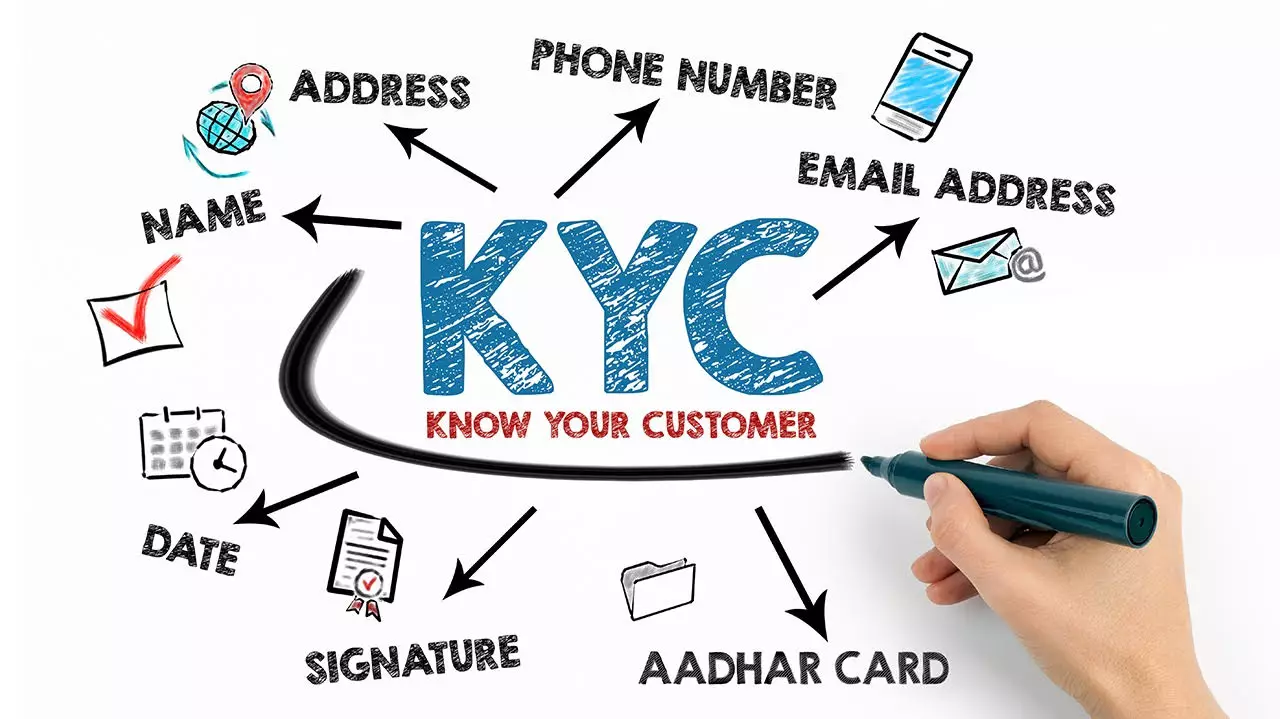
 December 12, 2022
December 12, 2022
The abbreviation KYC stands for” Know Your Customer” which has become the foundation for all Banking transactions. The Reserve of India has mandated the Know Your Customer process steps for all financial institutions to verify the authenticity of applicants for financial services.
It has been ruled that before acquiring new customers, Banks, Insurance and Asset management companies must comply with the KYC Guidelines, as the financial sector is prone to crimes like money laundering, identity theft, and terrorism funding
To complete the KYC Process, an applicant must submit the appropriate documents. Banks have enumerated several readily available records to simplify the process. The following KYC-Required Documents are to be submitted as proof of identity and address when Applying for a Loan or any other credit form,
Aadhaar/PAN/Passport/Driver’s License/Voter ID/Employee ID with photo, etc.
Wikipedia describes a PAN Card or a permanent account number as: “A ten-character alphanumeric identifier Foundational ID issued in the form of a laminated “PAN card” by the Indian Income Tax Department to any person who applies for it or to whom the department allots the number without an application.”
Thus, a PAN Card becomes an essential document for individuals with an income to establish their identity for tax, legal or banking needs. The details of a PAN Card include.
The details filled in the application form must match exactly with the PAN Card copy submitted. The PAN Card mainly serves as proof of Identity, age proof and signature verification. As mentioned, the father or mother’s name also authenticates as relationship proof if required.
The Aadhaar is a 12-digit number which gives a unique identity to every Indian citizen and provides a system for single-source offline/online identity verification. The different forms of Aadhaar are Aadhaar Letter, Aadhaar PVC card, e Aadhaar and m Aadhaar. All forms of Aadhaar are equally valid and acceptable. When applying for government or financial services, an Aadhar card can be used as proof of identity, address, and age. Specifications of an Aadhaar card include:
The QR code contains the demographic details and photograph of the customer, along with the masked email ID and mobile number. UDAI digitally signs the QR Code to avoid misuse. As an Aadhaar card has been declared an essential document for all official dealings, it has become nearly mandatory for all banking transactions.
An Aadhaar card is linked with the applicant’s mobile number and endorses the complete details required by Banks such as HDFC and Axis Bank to serve as an Identity and Address proof.
Further, the Aadhaar card also serves as an e-mandate for conducting biometrics, mainly as ICICI Bank operates KYC Verification digitally.
It is primarily a travel document issued to all Indian citizens on behalf of the Government of India. A Passport is proof of nationality and enables an individual to seek a permit or VISA to cross borders and travel overseas.
The rigorous checks conducted before issuing a passport give it authority to be used as an officially valid document for the purpose of KYC Verification. The passport can be used as proof of Identity and as address proof.
A passport carries a laminated photograph of the applicant and gives the following details:
A Driver’s Licence, Voter ID and a Government Employment ID are other KYC Documents Banks approve for verification.
For financial services, whether opening a new Bank account or acquiring credit, KYC Checks are to be completed per the guidelines of the Reserve Bank of India to ensure that the customer is genuine and not involved in fraudulent activities.
After submission, the financer thoroughly investigates all the documents to ensure that the papers submitted and applicant details are authentic.
The required process for verification of KYC Documentation can be done conventionally. Considering the changing times, the digital processing of KYC Requirements for banks has also been declared officially valid by the Reserve Bank of India.
The significance of KYC should not be underestimated; a one-time submission of all the necessary documents will help to expedite processing. Only after the KYC has been checked is the Bank or financial institution authorised to complete the financial transaction, be it opening a savings account or acquiring further credit.